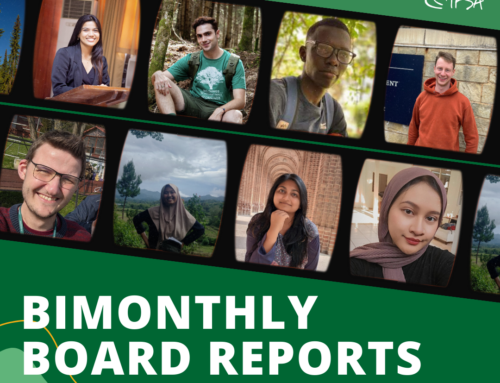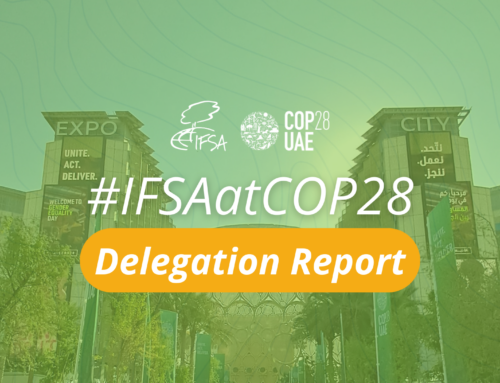Opinion Piece: The Conversation Nobody Wants to Have Liz Wass November 27th, 2018 In preparation for COP14, there were many hours spent reading, reviewing, and researching topics and issues that will be discussed at side events between plenary sessions during the conference. I have never been to an event at such a scale, and although I can admit I am a bit intimidated, I am also excited and grateful attend. I am passionate about nature and all its inhabitants, but throughout my years of education and research, I have been plagued with guilt knowing that humans are the main driver behind habitat loss, pollution and climate change that are threatening biodiversity. As an environmentalist, I feel constantly conflicted about driving a vehicle, using plastic products, having a cell phone, and getting on a plane that emits mass amounts of carbon and other toxins into the atmosphere to attend COP14 in Egypt. However, just because something is difficult does not mean we ignore it. In order to address my ecological footprint, I must first understand it. Becoming informed about environmental issues is the first step to identifying what one can do to make change. But there is a difference between the change one individual can make, and the change government policy and regulation can make. Although it is important for individuals to be accountable for their impact and consumption, having shorter showers and turning off a few lights won’t save the world. This is why I am attending COP14, to gain knowledge and understanding of biodiversity management and conservation at the global scale, the structures at which we must operate under and the impacts I can make as an individual. Becoming informed is the first priority. As biodiversity conservation efforts are explored deeper at COP14, it is clear that they are inherently linked to human rights. An estimated 80% of land that is rich in biodiversity is on Indigenous land. Indigenous Peoples have inherent rights to land on which they live, and are valuable knowledge holders. By maintaining biodiversity on the landscape, we are supporting local peoples and ensuring their self-determination and persistence. Indigenous Peoples are truly the stewards of the land, and are vulnerable to marginalization by industry and government that have only economic values in mind. It is clear that these bodies must be held accountable for their intentions, actions, and impacts they inevitably have on the land and people who inhabit it. As participating members of society, our power comes from our vote and our money. Becoming informed and involved in the local political climate is imperative for sustainable use and development of land, as well as human rights, regardless of which country you reside in. Actions speak louder than words, and our purchasing power has more impact than one may realize. It critical to understand where your money is going and who it is supporting. Following the money can sometimes be difficult to do, and often we want to make better decisions but the information can be difficult to obtain. It is a huge undertaking to try and understand economic systems, markets and businesses to try and make informed decisions. The capitalist structure many of us operate within is difficult to understand, let alone diverge from. Finding and supporting local businesses with an environmental ethic and sustainable practices not only contributes to the local economy, it also gives strength to incentives for change. Consumers participate within an ever-changing market, and businesses must be able to adapt in order to survive. However, these choices can be undermined by government subsidization of industries and infrastructure that compromise the integrity of the environment. Many economies rely on industries that extract natural resources, and due to this dependence we are unable to change this structure without many people suffering economically. This fear of change reinforces the short-sighted nature of many resource-based projects that result in the unsustainable use of land. The UN CBD is a diplomatic space where we are attempting to balance biodiversity and social values with the current political and economic systems. Therefore, addressing the impacts of consumerism in the context of environmental and human rights is crucial to initiate change in the current capitalist structure. At COP14, we abstain from really diving into the systemic problems of capitalism. However, without identifying the problem, it is not likely we will successfully change it. There is no shame in saying the system we have needs improvement. Humans are resilient, innovative, creative, and good at solving problems. We have created a situation that requires a shift in mindset, openness to change, and compromise. There is already momentum that is fuelling change, and every contribution, every article read and conversation had continues this movement. It has been identified at this conference that there is a disconnect between the decisions made at the international level, and regional implementation. Policy developed at COP meetings must find its way to national governments, and be incorporated into legislation and implemented at the local level. This is not an easy task, as each country has different governance, objectives, values, and culture. But biodiversity conservation is a global issue that requires change at all scales. It begins with information sharing, exploration of ideas and alternatives, and having the conversation about consumerism and culture that nobody wants to have.
“Taking care of nature is taking care of ourselves and our identity.” – Cristiana Pasca Palmer, Secretariat of the UN CBD]]>




